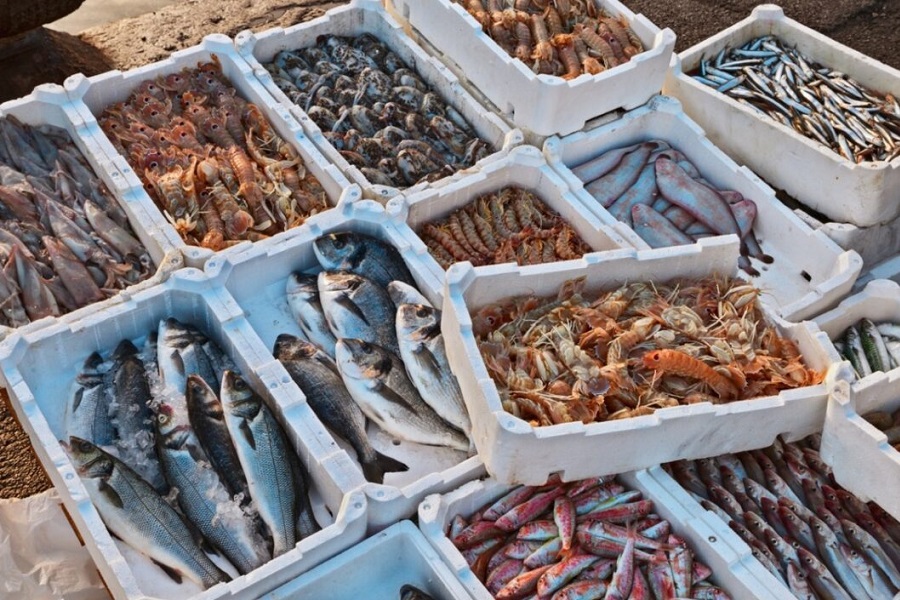11 Dec 2024

Tired Earth
By The Editorial Board

That's in a high carbon emissions and low mitigation scenario, according to the study published today in Nature Climate Change. This could be reduced to a roughly 10 per cent decline if the world were to meet the Paris Agreement targets of limiting global warming to 1.5 to 2 degrees Celsius -- which recent reports have shown we're not on track to achieve.
"Low-income countries and the global south, where seafood is central to diets and has the potential to help address malnutrition, are the hardest hit by the effects of climate change," said first author Dr. William Cheung, professor and director of the UBC Institute for the Oceans and Fisheries (IOF). "For many, seafood is an irreplaceable and affordable source of nutrients."
The researchers examined historical fisheries and seafood farming, or mariculture, databases including data from UBC's Sea Around Us to find out quantities of key nutrients that were available through fisheries and seafood farming in the past, and used predictive climate models to project these into the future. They focused on four nutrients that are plentiful in seafood and important to human health: calcium, iron, protein and omega-3 fatty acids, the latter of which is not readily available in other food sources.
They found that the availability of these nutrients peaked in the 1990s and stagnated to the 2010s, despite increases provided by farming seafood, and from fishing for invertebrates such as shrimp and oysters.
Calcium sees biggest decline
Looking to the future, the availability of all four nutrients from catches is projected to decrease, with calcium the hardest hit at a projected decline of about 15 to 40 per cent by 2100 under a low and high emissions scenario, respectively. Omega-3 would see an approximately five to 25 per cent decrease. These declines are largely driven by decreases in the amounts of pelagic fish available for catch.
"Small pelagic fish are really rich in calcium so in areas of the world where people have intolerances to milk or where other animal-sourced foods, like meat and dairy, are much more expensive, fish is really key to people's diets," said senior author Dr. Christina Hicks, professor at Lancaster University. "In many parts of the world, particularly low-income countries across the tropics, fish supply nutrients that are lacking in people's diets."
While seafood farming will contribute more nutrients in the future compared with current levels, the researchers projected these increases would not be able to compensate for the loss from fisheries. Under a high emissions scenario, any gains in the availability of nutrients from seafood farming before 2050 would be lost by 2100.
"The primary reason for this is climate change, which is also a significant threat to seafood farming, leaving us with a growing nutritional deficit," said co-author Dr. Muhammed Oyinlola, a postdoctoral fellow in the UBC department of zoology and the Institut national de la recherche scientifique. "Seafood farming alone cannot provide a comprehensive solution to this complex issue."
The availability of all four nutrients from tropical waters of generally lower income nations, such as Indonesia, the Solomon Islands and Sierra Leone, is projected to decline steeply by the end of the century under a high emissions scenario, compared with minimal declines in higher income, non-tropical waters, such as those of Canada, the U.S. and the U.K.
Globally, the researchers projected that seafood-sourced nutrient availability would decrease by about four to seven per cent per degree Celsius warming. For lower-income countries across the tropics including Nigeria, Sierra Leone, and the Solomon Islands, the projected decline was two to three times this global average at nearly 10 to 12 per cent per unit of warming.
"This research highlights the impact of every degree of warming," said Dr. Cheung. "The more we can reduce warming, the fewer risks to marine and human life."
Using all of a fish
Certain types of fish such as anchovies and herring are packed with nutrients but often used for fish meal and fish oil because these nutrients also promote fish growth. Similarly, many countries retain only select parts of a fish for sale. The researchers highlighted potential adaptations to increase nutrient availability from seafood, by retaining more of these nutritious fish for local human consumption, as well as reducing food waste in fisheries production and consumption by using all parts of a fish including the head and fins.
"The future development of seafood supply needs to consider the nutritional security of vulnerable groups, not just economic benefit," said Dr. Cheung. "But there's a limit to how effective these interventions are, so it's important to limit global warming as much as possible."
Source : sciencedaily.com
Comment